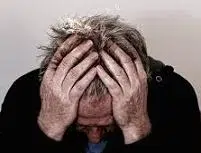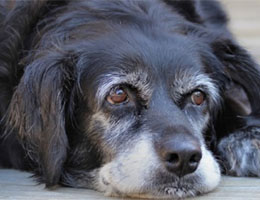 A dysfunction is an alteration or problem that affects the normal functioning of something . In the broadest sense, a dysfunction is the opposite of functional (that which fulfills its purposes effectively).
A dysfunction is an alteration or problem that affects the normal functioning of something . In the broadest sense, a dysfunction is the opposite of functional (that which fulfills its purposes effectively).
In the field of biology , the concept refers to a disorder of a function of the organism . When an individual experiences inconvenience at some stage of the sexual act, for example, it is called sexual dysfunction .
This dysfunction can be registered at any moment of the act: from desire to the arousal process, reaching the instance of resolution and orgasm. Sexual dysfunctions, therefore, prevent the person from enjoying their sexual life.
Sexual dysfunction can have psychological or physical causes, or both simultaneously. In some cases they are evident at the beginning of sexuality , while in others they appear over time.
Anaphrodisia, frigidity, impotence, vaginismus, dyspareunia and anorgasmia are sexual dysfunctions. Factors that can cause these disorders include depression , drug use, tumors, endocrine imbalances, hormonal problems, and certain injuries.
Erectile dysfunction specifically refers to a problem that prevents a man from achieving or sustaining the erection of his penis, making sexual intercourse difficult or impossible. It may be due to damage to the nerves, muscles or arteries or psychological reasons, to name a few possibilities.
A cognitive dysfunction , on the other hand, affects perception, memory and the ability to solve problems, while a multi-organ dysfunction is the simultaneous failure of two or more organs.
Cognitive dysfunction is usually associated with companion animals, more specifically dogs and cats, and appears when they reach old age . Broadly speaking, we can say that it is characterized by alterations in behavior and that it is in no way an inevitable consequence of aging, but rather a disease that only affects some individuals.
The various symptoms suffered by animals with cognitive dysfunction can be grouped into four large groups, as we see below:
* orientation disorders : in this category we find the feeling of strangeness in usual places, such as the rooms of your house. Patients with this type of dysfunction appear lost or disoriented in their own homes and often have moments in which they seem to be staring into space;
 * social interaction disorders : like any other serious health problem, especially those that appear in the elderly, the discomfort and inconvenience caused by cognitive dysfunction reduces the animal's willingness to interact with others. In this particular case, it is said that the patients no longer greet their human parents as in the past and that they do not ask for affection or attention very frequently either;
* social interaction disorders : like any other serious health problem, especially those that appear in the elderly, the discomfort and inconvenience caused by cognitive dysfunction reduces the animal's willingness to interact with others. In this particular case, it is said that the patients no longer greet their human parents as in the past and that they do not ask for affection or attention very frequently either;
* sleep disorders : dogs and cats that suffer from this dysfunction tend to sleep too much during the day, and increase their nocturnal activity , which can consist of both wandering around the house and vocalizing;
* evacuation disorders : patients usually defecate or urinate inside the house.
While not exactly the same as Alzheimer's disease , cognitive dysfunction is very similar. Among dogs and cats, the former are the ones who suffer from it most frequently, especially in the age group that goes from ten to twelve years old, and with a probability that is close to 20%. It is recommended that anyone who lives with animals pay attention to any abnormalities in their behavior, since suffering from these disorders without the help of a loved one is much more difficult.
